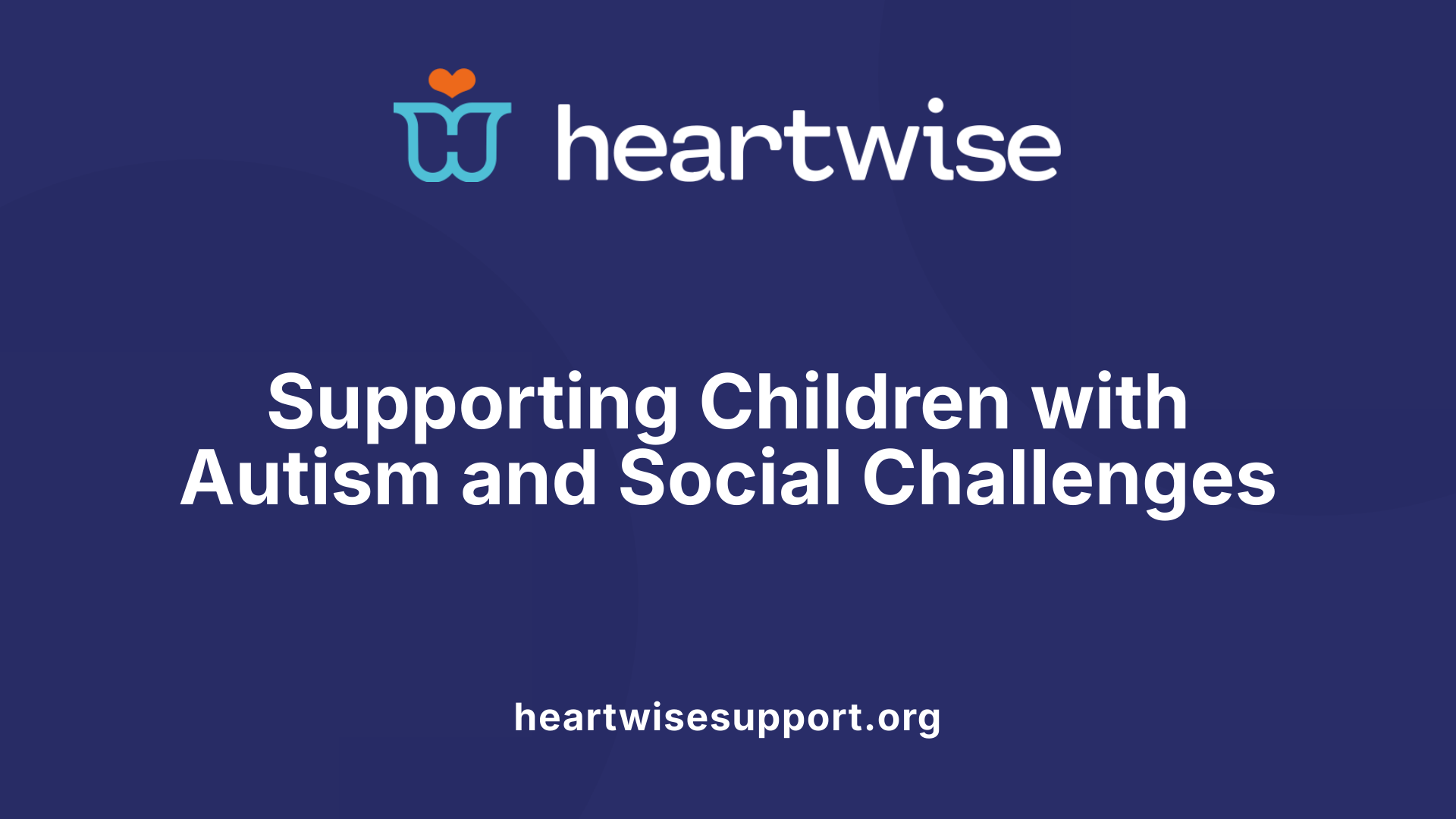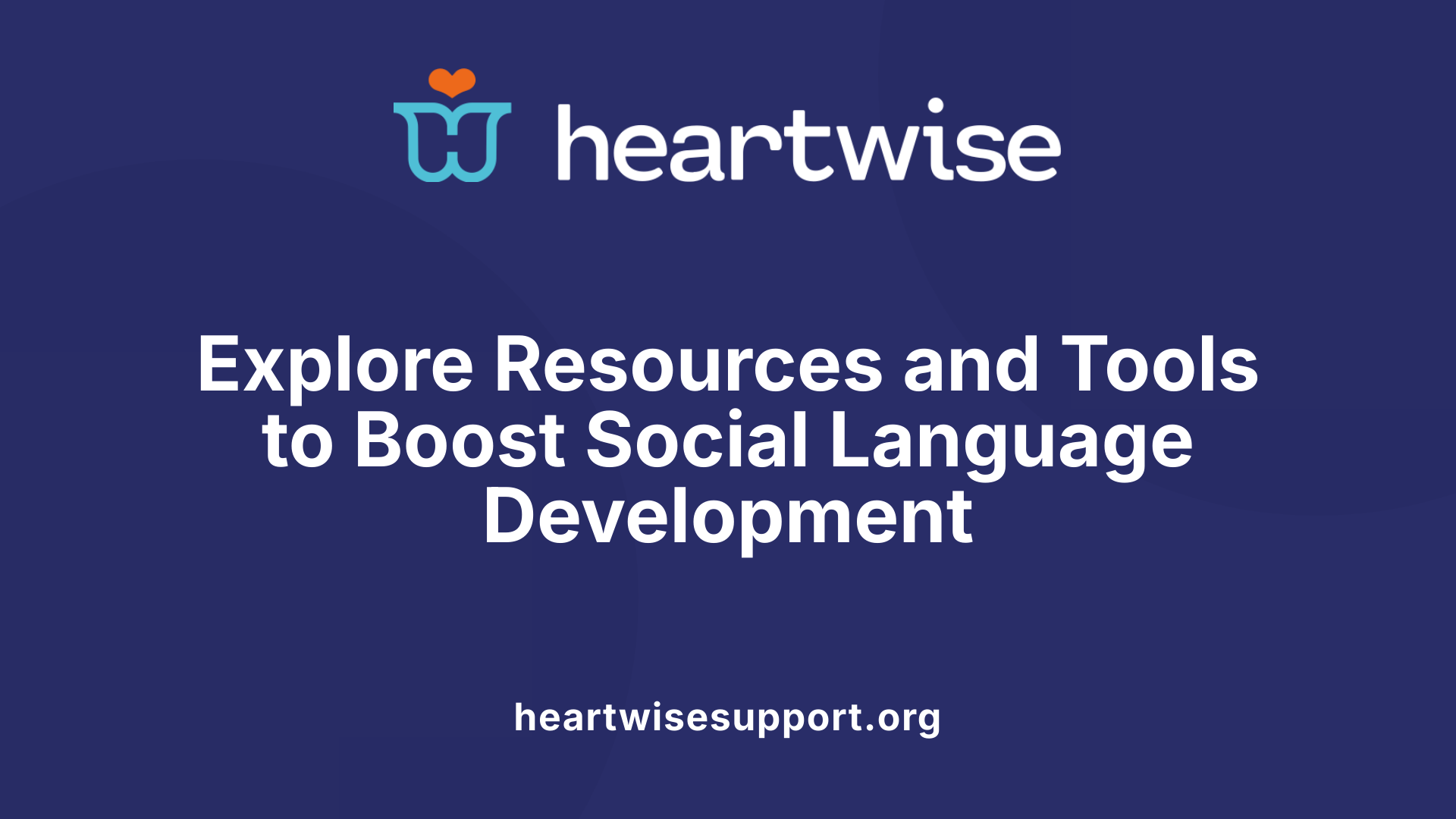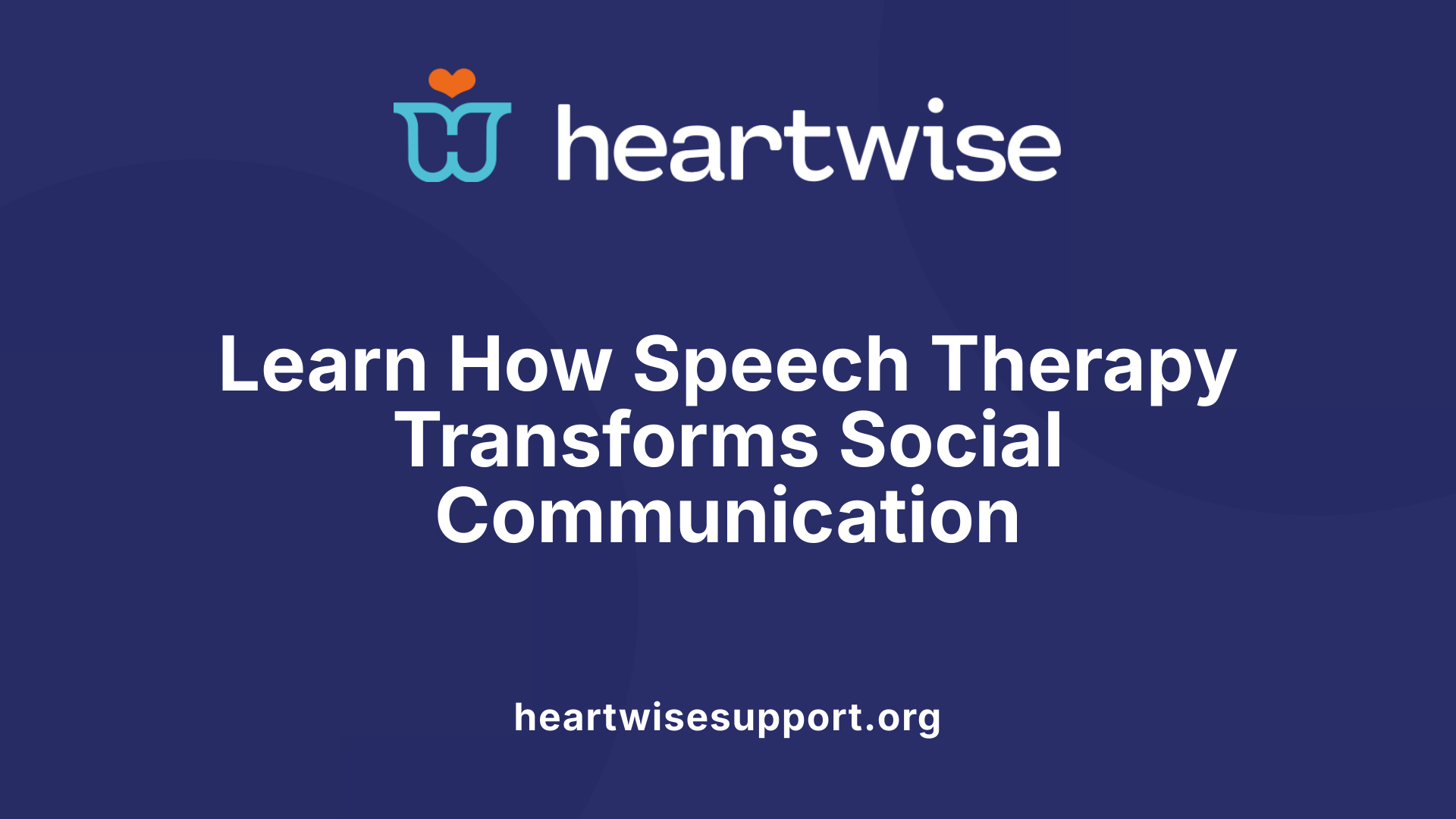Introduction to Speech Therapy and Social Communication
Speech therapy, also known as speech-language pathology, is a specialized field dedicated to diagnosing and treating communication disorders across all ages. Whether addressing articulation issues, language delays, or social communication challenges, speech therapy uses evidence-based techniques to enhance verbal and non-verbal interaction skills. It plays a crucial role in helping children develop foundational conversational abilities, such as turn-taking, topic maintenance, and understanding social cues, which are vital for successful social interactions. Children, especially those with developmental disorders like autism, benefit significantly from early intervention, which maximizes progress and minimizes the impact on social and academic development.
Core Skills in Developing Conversational Abilities

How can I teach the concept of conversation and topic initiation?
Teaching the idea of a conversation involves helping students understand that it is a two-way exchange where both people share and listen. Core vocabulary words like "conversation" and "topic" are emphasized to clarify these concepts. Using visual aids and social narratives that break down conversation into simple steps makes understanding easier. For example, illustrating how to start with a greeting, ask questions, and then find common interests sets a clear framework for students.
What foundational skills are necessary for effective conversation?
Building foundational skills is vital for successful social interactions. These include smiling to show friendliness, maintaining eye contact to demonstrate attentiveness, asking questions to keep the conversation going, and taking turns so everyone has a chance to speak. Teaching students to stay on topic helps keep discussions clear and engaging.
How can social narratives and role-playing enhance skills?
Social narratives provide a step-by-step description of what to do in different social situations, outlining both verbal and nonverbal cues. Activities like role-playing allow learners to practice these skills in a safe environment. For instance, students might practice initiating a conversation, adding comments, and politely ending a chat. Repeating these scenarios helps reinforce learning and builds confidence.
What strategies can help develop conversational skills in children or adults?
To develop conversational abilities, strategies include modeling good communication behaviors through short, one-on-one interactions. Using visual prompts and cues like S.L.A.N.T. (Smile, Look, Ask, Nod, and Talk) encourages appropriate non-verbal behavior. Encouraging informal chats and asking open-ended questions stimulates discussion and helps individuals consider multiple perspectives. Teaching turn-taking with objects like a talking stick promotes patience and respect.
Teaching respect within conversations by fostering respectful disagreement and addressing hurtful comments helps build empathy. Reinforcing positive interactions with eye contact and praise solidifies these skills. Creating a positive, respectful environment allows individuals to gain confidence and become more effective communicators.
| Concept | Explanation | Tips for Implementation |
|---|---|---|
| Conversation and Topic | Understanding and initiating social exchanges | Use visuals, social stories, and modeling |
| Foundational Skills | Smiling, eye contact, asking questions, turn-taking | Practice through role-plays and real interactions |
| Social Narratives & Role Play | Step-by-step guides and practice scenarios | Repetition and positive feedback |
| Strategies for Development | Modeling, visual cues, open-ended questions, respect | Foster supportiveness and patience in practice environments |
Fostering these skills through targeted therapy and practice helps individuals with social communication challenges improve their confidence and ability to interact effectively in various settings, from school to the workplace.
Social Narratives and Practice for Conversation Skills
How can speech therapy improve communication skills?
Speech therapy plays a vital role in enhancing an individual's ability to communicate effectively. It involves diagnosing and treating a broad range of speech and language challenges, such as articulation difficulties, fluency disorders, and social communication issues.
One of the main techniques used in therapy is the use of personalized exercises that target specific skills. For example, speech therapists (SLPs) incorporate mouth and tongue exercises, reading aloud, and engaging activities or games. These methods help strengthen oral muscles, improve speech sound production, and foster better understanding and expression of language.
For children, especially those with developmental conditions like autism or ADHD, speech therapy also emphasizes building social skills and self-confidence. By practicing conversational routines, children learn how to initiate dialogue, take turns, stay on topic, and appropriately end conversations. This comprehensive approach supports increased independence and social participation.
Speech therapy isn't just about speaking—it's also about improving vocal quality and swallowing functions when needed. As a result, individuals experience a better overall quality of life, with more confidence in social settings and more effective communication in daily interactions.
In essence, evidence-based techniques tailored to each person's needs enable clearer, more confident communication, opening doors to new opportunities and relationships.
Strategies for Teaching Topic Maintenance and Conversation Repair

How does speech therapy help in teaching conversational skills and maintaining topics?
Speech therapy plays a crucial role in helping students develop strong conversational skills, particularly in maintaining topics and repairing conversations when necessary. Therapists employ a variety of targeted activities and techniques, such as visual aids and structured games, to reinforce the importance of staying relevant during conversations. For example, the 'Topic Maintenance Railroad' activity uses visuals to help students identify when they are on-topic versus off-topic, making abstract social rules more concrete and understandable.
A fundamental aspect of therapy involves defining what it means to stay on-topic versus straying off, which helps learners recognize appropriate conversational behavior. Practicing these skills through role-playing exercises allows individuals to gain confidence and competence in multi-turn conversations. When conversations go off course, therapists teach strategies for repair, such as rephrasing questions, giving relevant comments, or politely redirecting the discussion.
Throughout therapy, engaging tools like visual supports, worksheets, and social communication activities are used to make learning relevant and fun. These strategies encourage active participation and give learners clear examples of what effective, relevant conversation looks like.
By focusing on these skills, speech therapy helps individuals not only initiate conversations but also sustain them by keeping the topic relevant and responding appropriately when required. This leads to improved social interactions, greater confidence, and a smoother flow of communication, all of which are essential for successful social participation.
Supporting Children with Social Communication Challenges including Autism

How can speech therapy support children with social communication challenges, including autism?
Speech therapy plays a vital role in helping children with social communication difficulties, including those on the autism spectrum. The focus is on developing essential conversational skills such as initiating, maintaining, and ending conversations effectively.
Therapists utilize a variety of techniques tailored to each child's needs. Social stories and video modelling help children understand social cues and appropriate responses in different situations. Role-playing activities provide a safe environment for practicing new skills, helping children learn how to engage with others confidently.
Using visual aids like conversation starter cards or structured activities such as morning meetings creates natural opportunities for conversation practice. These tools help children recognize the structure of a conversation, including making comments, asking questions, and taking turns.
Reinforcing positive social behaviors is a cornerstone of effective therapy. When children demonstrate good social interaction, they receive praise and encouragement, which motivates them to continue developing their skills.
Overall, targeted speech therapy interventions aim to improve social cues, such as eye contact, gestures, and body language, alongside verbal communication. These improvements foster better social participation, helping children build meaningful relationships and succeed in daily interactions.
Resources and Tools for Developing Social Language Skills

Are there educational resources available for developing social language skills?
Yes, there are many educational resources created by professionals and organizations dedicated to improving social language skills. For example, resources developed by NCSE Speech and Language Therapists offer structured programs for teaching social skills in various settings.
These resources include activity ideas, role-playing scenarios, and feedback techniques to help individuals learn how to understand and navigate social rules. They cover topics such as body language, tone of voice, sharing, empathy, and conflict resolution, making them practical for use in classrooms, therapy sessions, or at home.
Websites like Parenting Science and NHS Trust provide additional activities and ideas that support social communication development. These credible sources aim to help educators, parents, and caregivers foster social skills effectively and engagingly.
What interactive tools and apps are useful for supporting social language growth?
Interactive apps and software provide engaging ways for learners to practice social skills. Popular options include:
- Social Thinking Detective
- Conversation Builder
- Social Skills Builder
These tools help users learn about conversation concepts, such as initiating chats, maintaining topics, and understanding social cues, through games and interactive activities. They are designed to be used on tablets, computers, or smartphones, making practice accessible and fun.
What practical activities can parents and teachers use?
Practical activities that reinforce social language skills include:
- Role-playing different social situations
- Storytelling exercises to help identify social cues
- Turn-taking games to practice conversation flow
- Using visual aids to explain social rules
- Watching and discussing videos about social interactions
Involving family and teachers in these activities ensures that skills generalize across different environments and people.
| Resource Type | Examples | Focus Areas | Benefits |
|---|---|---|---|
| Educational websites | Parenting Science, NHS Trust | Social rules, empathy, conflict | Easy to access, credible, supports foundational skills |
| Interactive apps and software | Social Thinking Detective, Conversation Builder | Initiation, ongoing conversation, nonverbal cues | Engaging, interactive, suitable for various age groups |
| Practical activities | Role-playing, storytelling, visual aids | Turn-taking, body language, understanding social cues | Hands-on, promotes real-life application, adaptable |
Fostering social language development requires consistent practice using a combination of these resources and activities. Parents, teachers, and speech-language pathologists can collaborate to create effective, personalized learning experiences.
The Role of Caregivers and Teachers in Supporting Social Skills
What tips can help start and engage in conversations during speech therapy?
To successfully begin and maintain conversations during speech therapy, creating a warm, supportive environment is essential. This helps individuals feel comfortable and confident enough to try out their communication skills.
Using visual aids like picture cards or conversation starter charts can provide helpful prompts. Role-playing activities allow students to practice real-life situations in a safe setting, which builds their confidence.
Incorporating open-ended questions encourages more detailed responses and enhances social interaction. Social stories that depict common conversational scenarios also prepare students for real encounters.
Teachers and parents can work together by practicing these skills at home and in school settings. Consistent reinforcement and real-life application are crucial for making meaningful progress.
Regular assessment and tailoring strategies to each student’s strengths and needs help foster continual improvement. This personalized approach helps students develop comfort and skill in initiating and sustaining conversations.
Supporting social skills at home and school
Caregivers and teachers play a vital role in developing social communication skills. Modeling appropriate behaviors, such as making eye contact, smiling, and taking turns, sets a positive example.
Providing opportunities for social interaction through playdates, group activities, and classroom circles encourages students to practice conversational skills in natural settings.
Explicit teaching practices—like discussing social rules, practicing greetings, and clarifying misunderstandings—help students understand what’s expected in social exchanges.
Implementing these approaches consistently across environments enhances skill generalization. Patience, encouragement, and positive reinforcement are essential to motivate continued growth in social communication abilities.
Summary and Impact of Speech Therapy on Social Communication Skills
 Speech therapy offers comprehensive benefits in enhancing social communication skills, especially for children with developmental challenges such as autism or speech delays. It focuses on teaching foundational skills like initiating conversations, staying on topic, asking questions, and using gestures and body language effectively.
Speech therapy offers comprehensive benefits in enhancing social communication skills, especially for children with developmental challenges such as autism or speech delays. It focuses on teaching foundational skills like initiating conversations, staying on topic, asking questions, and using gestures and body language effectively.
One core aspect is helping individuals learn conversation rules, such as taking turns, clarifying misunderstandings, and recognizing social cues like facial expressions and eye contact. These skills are developed through structured activities, role-playing, and social narratives that break down each step of a conversation into observable behaviors, often described as 'looks like' and 'sounds like.'
Therapists often incorporate visual aids and interactive exercises to practice skills in real-life contexts. This practical approach ensures that individuals not only understand social rules but also apply them confidently at school, home, or work. Family and teachers are engaged to support generalization of these skills outside therapy sessions.
The effectiveness of speech therapy extends beyond immediate skills, contributing to increased social participation and independence. As individuals improve their ability to communicate effectively, they tend to experience better peer relationships, increased confidence, and enhanced emotional well-being.
| Benefits of Speech Therapy | Focus Area | How It Helps |
|---|---|---|
| Develops conversational skills | Initiating, maintaining, ending conversations | Creates more natural and engaging interactions |
| Improves understanding of social cues | Facial expressions, gestures, eye contact | Enhances ability to read and respond to social situations |
| Enhances practical communication | Asking questions, replying, changing topics | Facilitates smoother social exchanges |
| Builds confidence and independence | Applying learned skills in daily life | Promotes social participation and personal growth |
In summary, speech therapy is instrumental in teaching and reinforcing social communication rules, enabling individuals to engage more fully and comfortably in social environments. Its long-term impact includes better relationships, improved self-esteem, and increased success in various social settings.
Concluding Insights on Speech Therapy and Social Skills Development
Speech therapy offers invaluable tools and strategies for developing social and conversational skills, essential for meaningful social integration and personal growth. With targeted interventions like role-playing, social narratives, visual aids, and caregiver involvement, individuals of all ages can strengthen their ability to initiate, maintain, and conclude conversations, understand social cues, and respond appropriately. Early intervention maximizes these benefits, setting the stage for improved confidence and social participation across various settings, including home, school, and the workplace. As the field advances, accessible resources and technology will continue to enhance the effectiveness of social communication development, making speech therapy an essential support system for effective and confident social interaction.
References
- How to Teach Conversation Skills - The Gift of Gab
- Social Communication - ASHA
- How Speech Therapy Can Help with Conversational Skills
- Strategies for Conversational Skills in Speech Therapy - Bilinguistics
- Speech Therapy Strategies to Help Improve Communication
- Social Skills Speech Therapy: Helping Children & Adults Thrive
- How Speech Therapy Can Improve Communication Skills In Children











